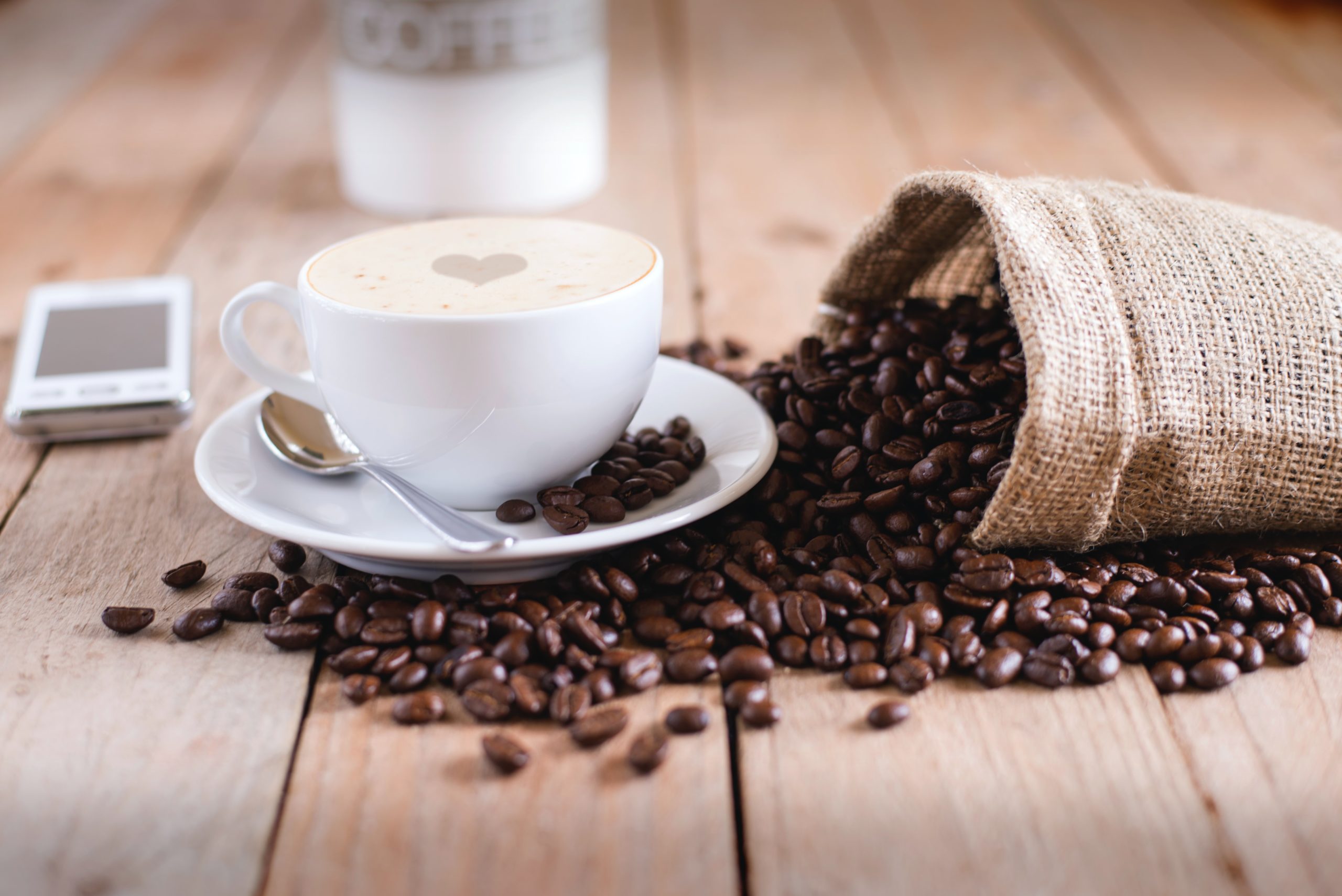Want to know what decaf coffee is?
We'll tell you about decaffeinating coffee, whether decaf coffee is safe to drink, and for whom it is suitable.
Let's take a look.
What Is Decaf Coffee?

Decaf coffee is coffee that contains less caffeine than regular coffee. This is achieved by a decaffeination process.
There are three main decaffeination processes:
- The solvent method
- The Swiss Water method
- The carbon dioxide method
Most coffee beans are processed with either the solvent method or the Swiss water method.
Up to 97% of the caffeine can be removed from coffee. This means the caffeine in a cup of coffee can drop from an average of 95 mg to an average of 2 mg.
Effects of Caffeine on the Body
Coffee owes its invigorating effect to caffeine, a powerful stimulant of the nervous system.
Caffeine is the reason people talk about the dangers of excessive coffee consumption.
Consumption of up to 400 mg per day is considered okay for a healthy adult.
This means you can probably drink about four to five cups of black coffee a day.
But it's worth remembering that caffeine is also found in foods and other beverages—tea, chocolate, cola drinks, energy drinks, etc.
Exceeding the recommended levels of caffeine can cause:
- Insomnia
- Anxiety
- Persistent fatigue
- Tachycardia (increased heart rate)
- Headaches
- High blood pressure
Why Do People Drink Decaf Coffee?
Decaf coffee is popular with people who are sensitive to the effects of caffeine but are not ready to give up coffee.
Also, one of the main side effects of drinking coffee is heartburn or acid reflux. Drinking decaf coffee can reduce this effect.
Doctors advise limiting caffeine intake during pregnancy and breastfeeding. Decaf coffee is a good solution in this case.
It's also a helpful option for those who want to enjoy coffee before bed without experiencing insomnia.
Is Decaffeinated Coffee Bad for You?
Decaffeinated coffee is safe to consume and can even be part of a healthy diet.
If you are worried about decaffeinating methods, don't be—they are safe for your health.
Moreover, independent research from scientists around the world has linked both decaf and regular coffee to many health benefits.
What Methods Are Used to Decaffeinate Coffee Beans?
While no one has yet figured out how to grow caffeine-free coffee, you can easily remove this unwanted element from the beans after harvesting them.
The first decaffeination method was invented in 1905 but is now prohibited.
Caffeine was extracted by soaking green coffee beans in water and benzene.
But some of the benzene—a carcinogen—remained in the coffee beans, so this method had to be abandoned.
Now let's look at three of the most popular methods currently in use:
The solvent method
This method is the cheapest and most common.
First, green coffee beans are soaked in hot water.
Then they are soaked for 10 hours in water that contains a solvent—either dichloromethane or ethyl acetate. Solvents pull the caffeine out of the coffee beans.
The next step is to get rid of the solvent by soaking the beans in hot water again.
When the ethyl acetate comes from fruits or cane sugar, the method is called "natural."
The Swiss Water method
The Swiss Water Process is certified organic. Caffeine is removed from the coffee without the use of chemicals.
This method is more expensive than the previous one, but it is considered the highest quality and most harmless.
First, green coffee extract (GCE) is prepared when a first batch of coffee is soaked in water.
During this process, caffeine and substances that are responsible for coffee's taste and aroma are transferred from the beans to the water. The water becomes GCE.
Then the extract goes through a system of charcoal filters that trap caffeine and leave all the other elements.
Then a second batch of beans is soaked in the extract.
When the beans enter the extract, their substances begin to strive for balance.
Because the beans contain caffeine, but the extract does not, caffeine passes out of the beans and into the extract. And because both the beans and the extract contain aromatic and flavor substances, those substances remain in the beans.
The problem with this method is that one soak cannot remove all the caffeine.
To solve this issue, after the second batch of beans soaks, the extract is again filtered through charcoal filters.
The second batch of beans is then soaked in the extract again a few more times until the caffeine content of the coffee is reduced to 0.01%.
The decaffeinated coffee retains its high-quality taste, does not retain any chemicals, and can lead to fewer of the negative health effects associated with caffeine.
The carbon dioxide method
This method creates decaf coffee by using carbon dioxide (CO2) in a liquefied state under high pressure.
The coffee beans are soaked in a mixture of water and compressed gas.
The gas takes on a liquid form and acts as a solvent that removes caffeine from the beans.
This method is the most expensive due to the complexity of the equipment used.
What's the Difference Between Decaf and Regular Coffee?
Not only does decaf coffee lack an invigorating effect, it also has slight taste and aroma differences.
Any decaffeinating technology removes not only caffeine but also some aromatic substances.
To compensate for this disadvantage, Arabica beans are used for decaf coffee. Only high-quality Arabica coffee varieties that have a very strong taste and aroma are selected.
Arabica is useful for decaf coffee production because it contains less caffeine and more flavor and aroma components than Robusta even before processing.
In general, though, decaf coffee tastes pretty much like regular coffee.
And if a decaf coffee drink doesn't seem rich or aromatic enough, you could add a few regular coffee beans to your mix before grinding. It won't raise the caffeine level much, and the coffee could become tastier.
Conclusion
For people with certain health conditions, or people who for other reasons want to limit their caffeine intake, decaf coffee can be a good alternative.
But remember that decaf coffee still contains a small amount of caffeine.
Choose only high-quality brands and carefully monitor your well-being.
